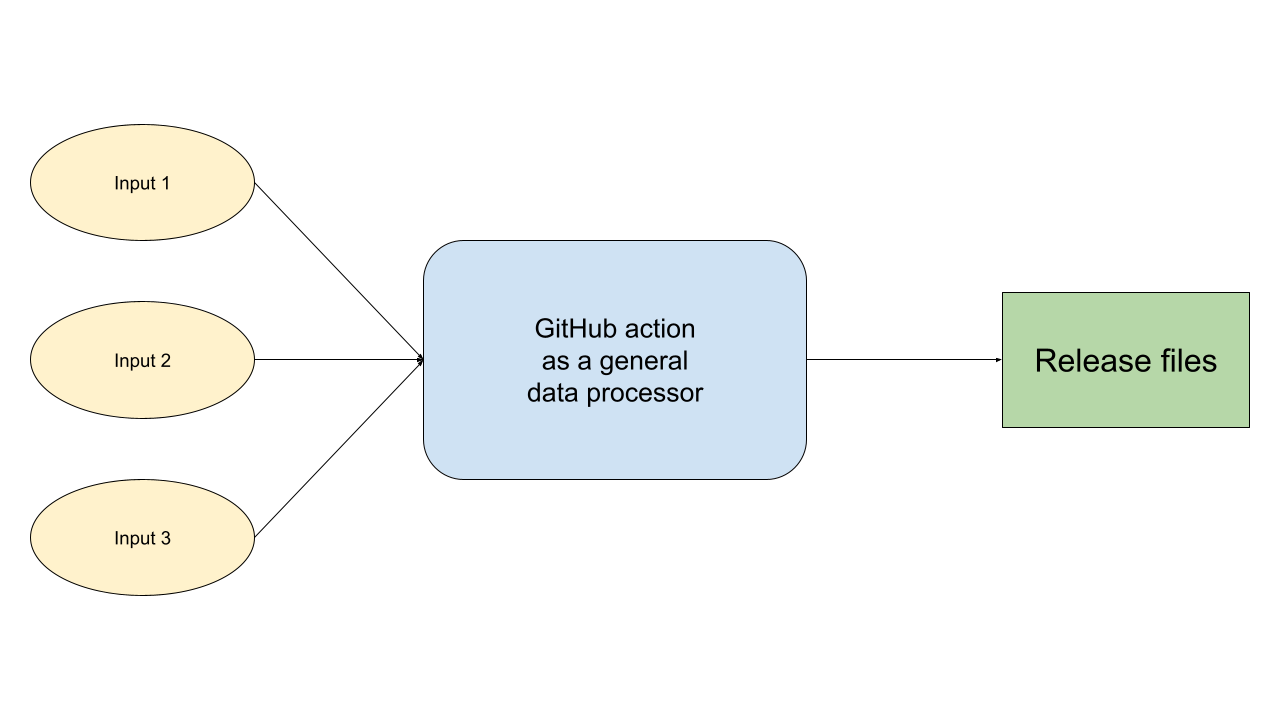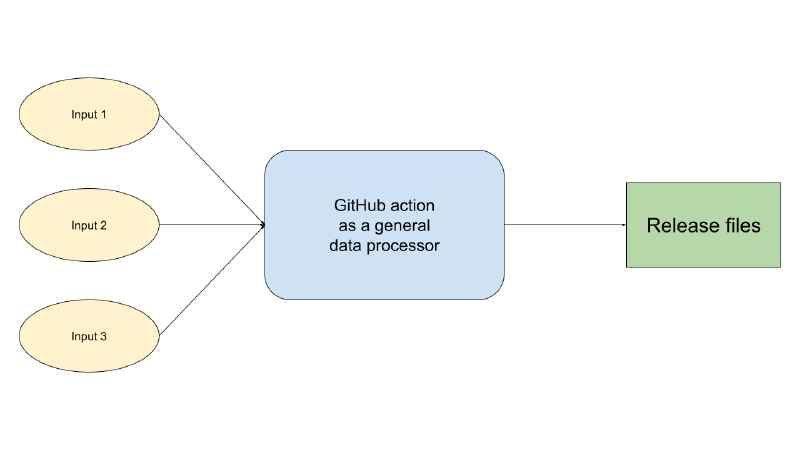What are GitHub Actions?
GitHub Actions are a way to automate your software development workflows. They are similar to CI/CD tools like Jenkins, CircleCI, and TravisCI. However, GitHub Actions are built into GitHub.
GitHub Actions are not entirely free, but they have very high usage limits for open-source projects. For private repositories, you can run up to 2,000 minutes per month for free. After that, you will be charged.
GitHub Actions for non-CI/CD tasks
However, GitHub Actions are not just for CI/CD. You can use them for many general-purpose tasks. For example, you can use them as an extension of your application to perform tasks such as:
- generating aggregate reports
- updating a database
- sending notifications
- general data processing
- and many others
A GitHub Action can run arbitrary code, taking inputs from multiple sources such as API calls, databases, and files.

You can use a GitHub Action as a worker for your application. For example, you can use it to process data from a database and then send a notification to a user. Or you can use it to generate a report and upload it to a file server.
Although GitHub Actions in open-source repositories are public, they can still use secrets that are not accessible to the public. For example, secrets can be API keys and database access credentials.
A real-world GitHub Action doing data processing
Below is an example GitHub Action that does general data processing. It uses API calls to download data from NVD (National Vulnerability Database), generates files from this data, and then creates a release. Subsequently, the application can download these files and use them directly without making the API calls or processing the data itself.
GitHub gist:
The GitHub Action does a checkout of our application code and runs a script cmd/cve/generate.go to generate the files. Then, it publishes the generated files as a new release. As a final step, it deletes any old releases.
A note of caution. GitHub monitors for cryptocurrency mining and other abusive behavior. So, keep that in mind and be careful with process-intensive actions.
Use GitHub Actions for general-purpose tasks video
Other articles related to GitHub
- How to reuse workflows and steps in GitHub Actions
- What happens in a GitHub pull request after a
git merge - How to create a custom GitHub Action using TypeScript
Note: If you want to comment on this article, please do so on the YouTube video.
